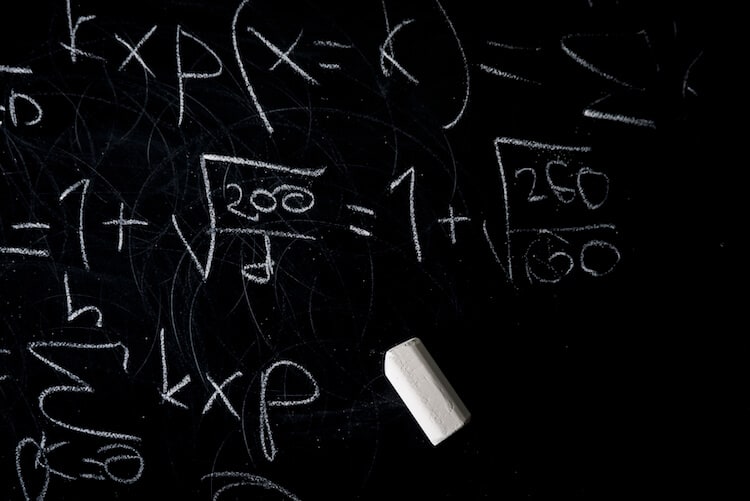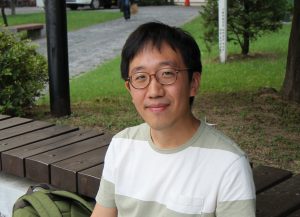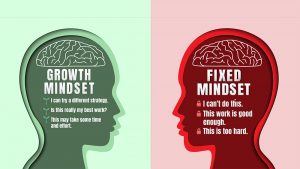
MEK Celebrates Dr. Huh: 2022 Fields Medalist
MEK Celebrates Dr. Huh: 2022 Fields Medalist
Recently, June Huh was named as 1 of the 4 recipients of the 2022 Fields Medal for his mathematical achievements. He is the first Korean mathematician to receive this honorable award.
What is the Fields Medal?
The Fields Medal celebrates diverse mathematical achievements and is awarded to 2-4 mathematicians every 4 years. It is considered the equivalent of the Nobel Prize. J.C. Fields, a Canadian mathematician, founded the award. Recipients are under 40 years of age.
Who is June Huh?

(Source Princeton)
Unlike most mathematicians, Dr. Huh was not always talented at math. He didn’t get top grades in math or win math competitions as a kid. Instead, Dr. Huh struggled in his math classes and wanted to be a poet.
An early mathematical breakthrough happened in middle school, when Dr. Huh faced a chess board problem in the computer game “The 11th Hour”. Days of struggling went by before he pushed through and realized the solution. By not giving up and finding a strategy to simplify the problem, Dr. Huh was able to solve the puzzle.
Dr. Huh’s pursuit of mathematics took root during his senior year at college, when he studied under Heisuke Hironaka, a Japanese mathematician who received the Fields Medal in 1970. Using what he had learned from his knowledgeable mentor, Dr. Huh went on to apply Hodge Theory to combinatorics, the achievement which led him to receive the Fields Medal.
Importance of the Growth Mindset

(Source: Metrifit)
Dr. Huh made a name for himself in mathematics because he had a growth mindset. Someone with a fixed mindset, who believes they can only be born with skills or talent, would think they are “not good at math” and will never be.
On the other hand, someone with a growth mindset sees skill and talent as something they can gain through learning and practice. Even if they are originally not “good at” math, they would continue to pursue the subject to improve until they acquire the skills.
We asked our math teachers what they had to say about this great honor and how to build a growth mindset in order to push past barriers and achieve success. Here’s what they had to say.
Pranav Gupta – Director of High School Admissions
1. “Interest is key.”
Interest motivates people to learn and pursue something. Before Dr. Huh found his place in algebraic geometry and combinatorics, he was lost trying to study topics he had no interest in. But even though he failed many classes, he was still able to find his passion in algebraic geometry. And, ultimately, it was his interest that helped him excel.
2. “Anything is possible if you chase the fundamentals of a subject.”
Every subject has basic rules and principles to follow. These basics provide students with a way of thinking which will help them succeed at more advanced topics. The development of an analytical mindset and reasoning skills is key to success in math.
3. “You need to be persistent.”
It’s difficult to succeed on the first try. Dr. Huh failed many times before succeeding in math. He wasn’t good at math from the start, but he didn’t give up. By attempting to solve a problem multiple times and learning from their failures, students can grow their skills and gain confidence.
Tony Kim – Director of Exam Prep – Math
4. “You don’t need to be born with talent to be great at Math.”
This is a belief of students with fixed mindsets. In reality, math skills are gained over time. Even students who have an easier time understanding math than most need to hone their skills through regular instruction and practice.
5. “If students enjoy the subject, then skills and achievements will follow automatically.”
When students enjoy a subject, they’ll spend more time on it. Rather than stressing over and prioritizing getting to the right solutions, students who find enjoyment in math will be more inclined to carefully go through each step of the problem-solving process.
Similarly, focusing on achievements can leave students feeling frustrated when they struggle on difficult math problems. When they rush to get the correct answer to a problem and fail, it’s easy to become discouraged. The process of solving problems and equations is a journey. Once students appreciate each step of solving a problem and how the variables interact, their stress turns into enjoyment and they’ll arrive at the solution before they know it.
6. “Don’t try too hard to be “good” at math, try to have “fun” with it first.”
This advice is in line with not focusing solely on skills and achievements. Taking the pressure off of getting good grades allows students to direct more attention to understanding each step in a problem. This helps them establish a strong foundation in math and build their confidence in their abilities.
Achieve Your Own Success in Math Today!
MEK helps students develop a growth mindset so they, like Dr. Huh, can make their own success stories.
Our one-on-one math Tutoring Programs provide students with the necessary tools to succeed under the support and guidance of expert teachers. Students receive a customized plan tailored to their academic needs and learning goals, and learn study habits and content knowledge aligned with the Common Core State Standards.
Fill out our registration form or contact us today to get started!



